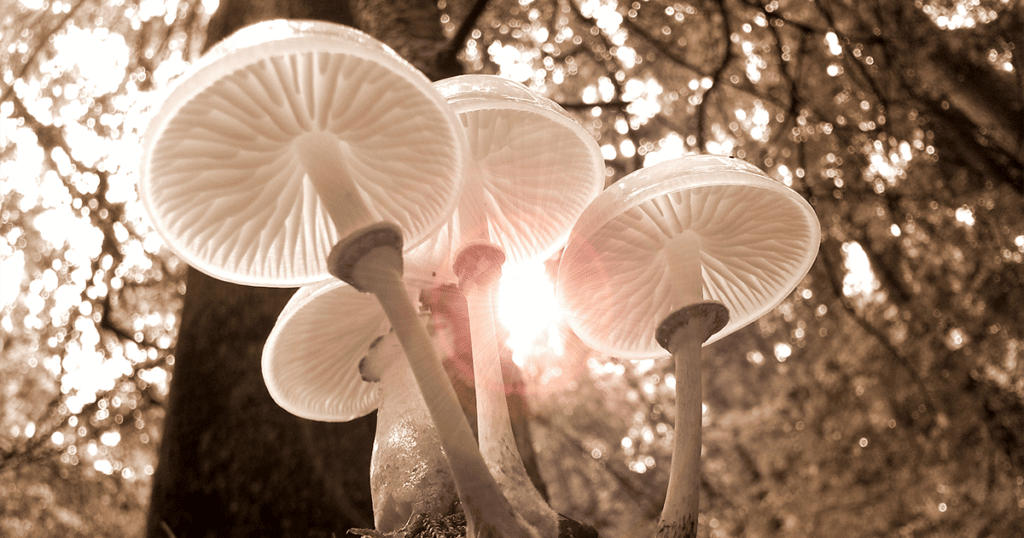Though primarily popular through recreational use, more efforts have been made in recent years to conduct psychedelic research as it relates to the field of mental health. Now, this can be expected to be taken even further and gain greater momentum. This comes as the National Institute of Mental Health (NIMH) has recently released a Notice outlining its priorities and considerations for research that involves psychedelics and other related compounds.
The Notice states that research will be geared toward the evaluation of psychedelics “for their therapeutic potential in treating depression, post-traumatic stress disorder, and other mental illnesses.” A turning point in both the pharmaceutical and mental health industry that stands to benefit millions across America and, by extension, the world.
In fact, the Johns Hopkins Center is already a leader in innovative psychedelic research. In previous studies, researchers at the center found that psychedelic treatment for adults using psilocybin was able to significantly improve major depressive disorder symptoms for as much as one month.
The Use Of Animals As Model Systems
In an earlier announcement in September this year, the NIMH noted, “Basic and pre-clinical research in animals is critical for understanding fundamental neurobiological mechanisms that drive complex behaviors and to facilitate NIMH efforts to transform the understanding and treatment of mental illnesses.”
However, in their latest announcement on psychedelics, they cautioned that the use of animals as model systems is not well suited to study and assess the therapeutic efficacy of psychedelics.
Further details are outlined in the Notice but, in short, the NIMH identified the following as low priority when it comes to research on psychedelics in animals:
- Studies proposing to investigate the therapeutic efficacy of psychedelics and/or related compounds using animal models of mental illness
- Studies designed to compare the neurobiological and/or behavioral effects of psychedelics and other approved antidepressant treatments
- Behavioral studies that lack neurobiological measures
- Research evaluating in vivo effects of psychedelics using dose ranges and/or treatment regimens (e.g., time course, route of administration) for which there is insufficient PK/PD data to support the proposed experimental design
A Word On Clinical Trials
It is advised that any clinical trials should follow the existing NIMH guidelines on exploratory experimental therapeutics.
As it relates to pediatric testing, they note that they cannot be performed until sufficient adult PK/PD/efficacy has been established to facilitate the data gathered in pediatric trials.
As it relates to translational research on psychedelics in humans, researchers should note that examples considered to be of low priority to NIMH include the following:
- Studies lacking rigorous and reproducible assessment of the integrity of the blind for patients, therapists, and raters
- Studies lacking rigorous and reproducible assessment of expectancy effects
- Studies that involve the use of adjunctive psychosocial interventions (e.g., to facilitate the delivery/exposure to psychedelics) without operationalizing and assessing the delivery of the psychosocial elements
Related post: Hope and hype: Psychedelic drugs still to prove value in clinical trials

The Future Of Psychedelic Research
Given the latest guidelines established by the NIMH, there’s expected to be an uptick in research being conducted on the use of psychedelic drugs in treating medical conditions.
Researchers are eager to clear common misconceptions and demonstrate successful usage, while those who stand to benefit are eager to witness advancements in the medical field.
For more on this, take a look at the following video in which Dr. Roberta Murphy, a psychiatrist with the Centre for Psychedelic Research at Imperial College London, talks about the new wave of psychedelic research.
Altered States: The New Wave of Psychedelic Research | Dr Roberta Murphy | Ireland’s Edge

Whether you’re seeking a grant to conduct research or simply want to stay in the know, we hope this blog provided greater insight into the potential future of psychedelic research and drugs, especially as it relates to mental health.
Enjoyed that first hit? Come chill with us every week at the Friday Sesh for a freshly packed bowl of the week’s best cannabis news!

















